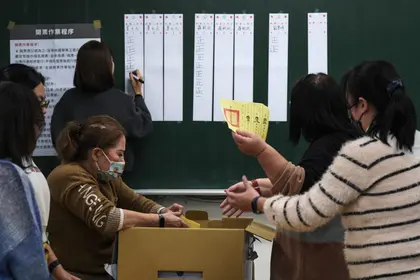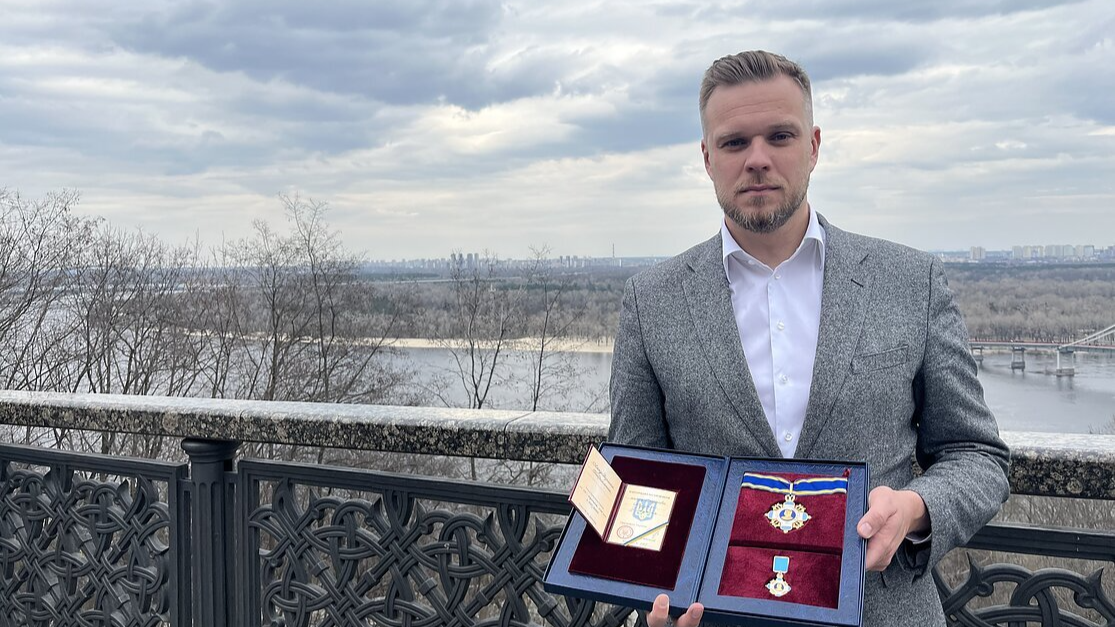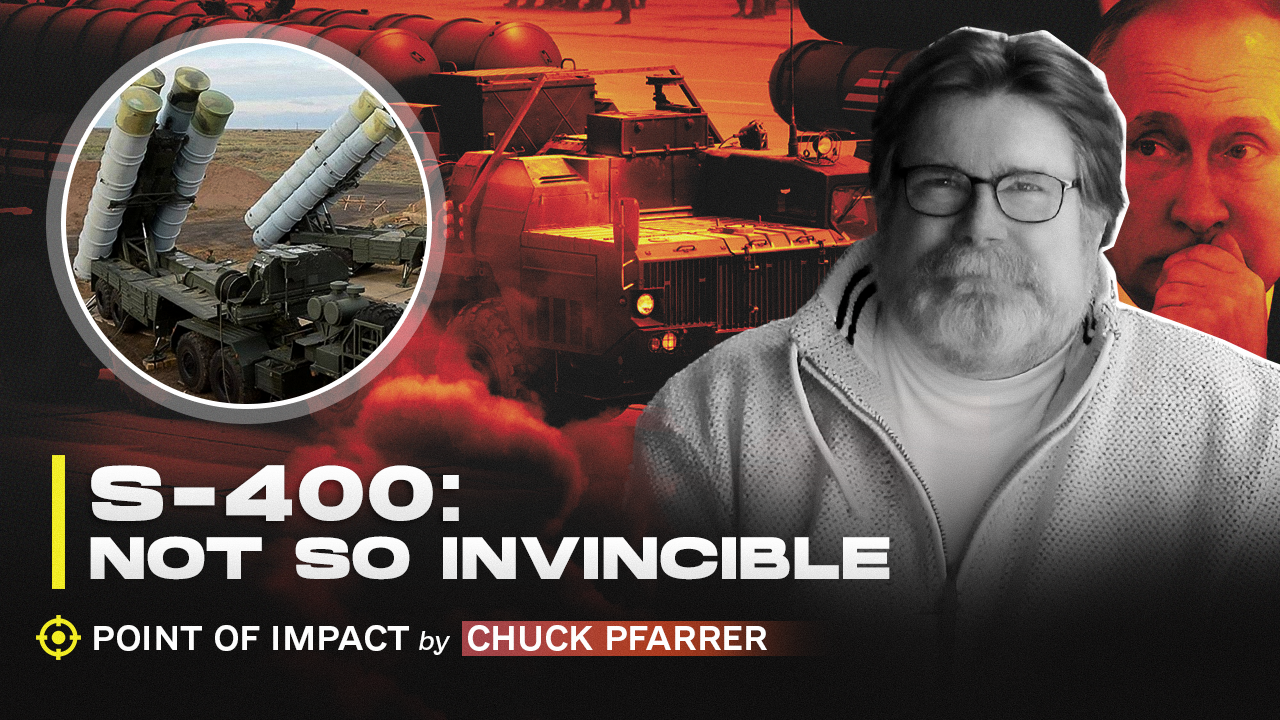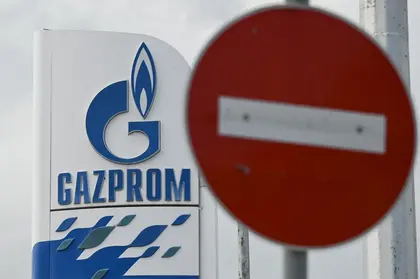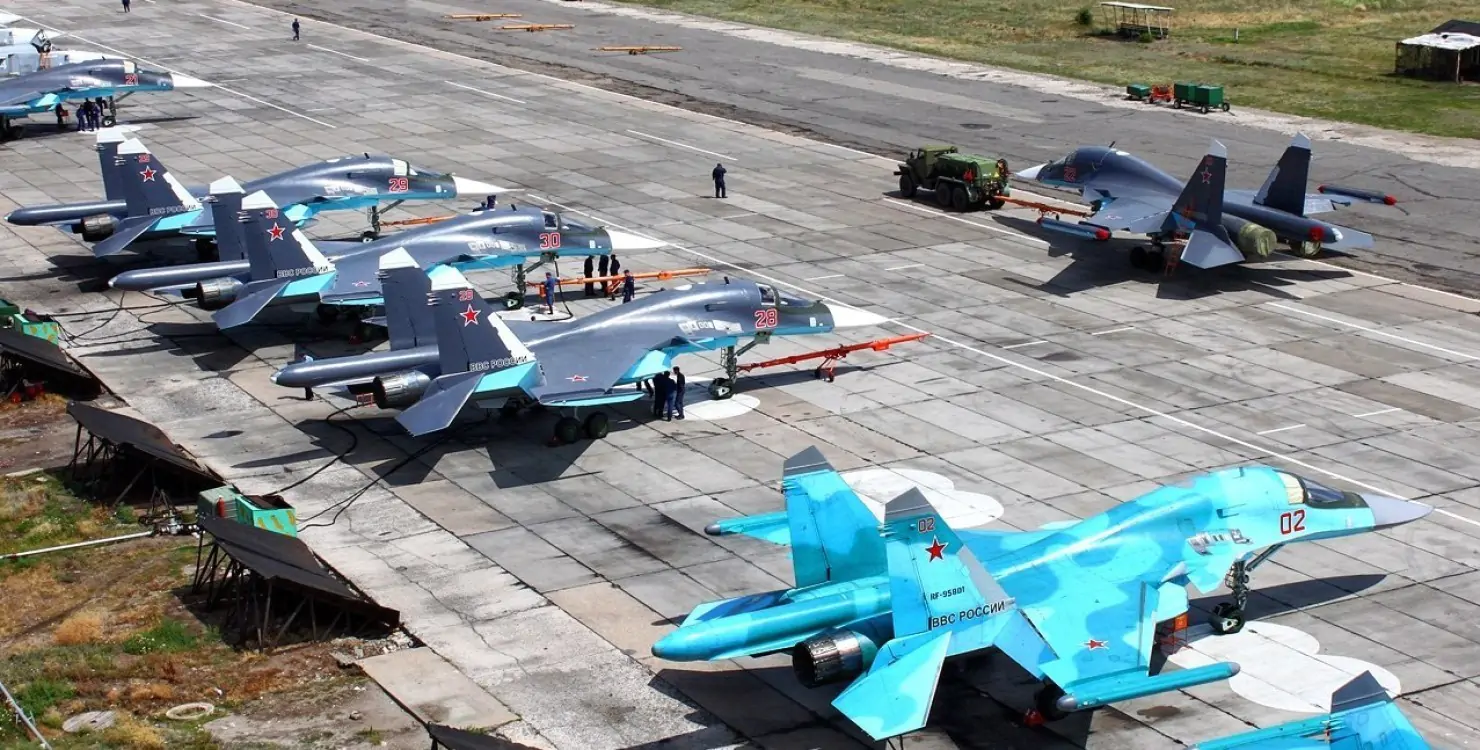As Taiwan goes to the polls on Saturday (13 January) to elect a new president and parliament amid increasing tensions between the self-governing island and China, Europeans mull how to navigate ties with Taipei.
Taiwan’s election, which is being closely watched internationally amid geopolitical tensions, is one of the first among the estimated 75 polls being held around the world this year.
JOIN US ON TELEGRAM
Follow our coverage of the war on the @Kyivpost_official.
For Europe, it will mean navigating a grey zone between developments in the Taiwan Strait and EU member states’ dealings with China, which remain strained by a long list of irritants.
After shaking off decades of KMT-imposed martial law, Taiwan held its first direct presidential election in 1996. Since then, only candidates from the two major parties – the traditionally China-friendly Kuomintang (KMT) and the Democratic Progressive Party (DPP) – have captured the presidency
Voters will choose a new leader to succeed Tsai Ing-wen, Taiwan’s first female president, who cannot run for a third term after winning elections in 2016 and 2020.
Tsai is a member of the DPP, which is eyed by China’s Communist leaders for its views of Taiwan as a sovereign nation instead of being part of China, as claimed by Beijing.
What’s at stake?
Beijing has long considered self-governed Taiwan as part of China, with Chinese leader Xi Jinping repeatedly threatening to “unify” it with the mainland, not excluding the use of force.
China has increased the pressure on Taipei over the past seven years and stepped up military activity around the island, regularly sending fighter jets and warships into the Taiwan Strait.

German President Steinmeier Dissolves Parliament, Sets Feb. 23 Election Date
Maintaining the “status quo” is a core Taiwanese cross-societal consensus supported by an overwhelming majority of the population.
After pro-status quo Tsai was first elected president, Beijing cut off official communication with her government, stepped up military pressure and turned towards economic coercion.
Escalation would resonate far beyond the region: Taiwan is the world’s biggest global chip manufacturer, with 60% of semiconductors worldwide and 90% of the most advanced chips produced by a single company: Taiwan Semiconductor Manufacturing Company (TSMC).
Roughly 90% of the largest container ships vital for global trade transit through the Taiwan Strait.
Closer European ties?
Voters will choose between three candidates.
The ruling Democratic Progressive Party’s (DPP) candidate, Vice President Lai Ching-te, is competing against Kuomintang (KMT) candidate Hou Yu-ih, a former police chief and mayor of the island’s most populous city, New Taipei City.
While the KMT has denounced Lai, the frontrunner, as an independence supporter, he repeatedly has ruled out any plan to declare independence if elected.
Ko Wen-je, leader of the four-year-old centrist Taiwan People’s Party (TPP) and former Taipei mayor, is challenging the two main political parties and is particularly popular among youth.
A fourth potential contender, billionaire Terry Gou, founder of Apple’s major supplier Foxconn, formally withdrew his candidacy hours before the deadline to register as a candidate.
China has not publicly named a preferred candidate, instead framing the vote as a choice between war and peace.
But China’s defense ministry on Friday afternoon, the eve of the vote, has vowed to “smash” any Taiwan independence “plots”, sending a stark reminder just hours before Taiwanese voters headed to the polls.
While all three candidates have focused on US-China tensions, there have been only a few references to closer ties with Europe.
“I will tell European leaders that Taiwan is most happy to deepen [exchanges] on values, economic and trade ties, and climate change with European countries,” DPP’s Lai said during an international press conference this week in Taipei.
“Taiwan also looks forward to working with Europe on peace in the Indo-Pacific region,” he said.
Lai thanked “European countries for expressing opposition to changes to Taiwan Strait status quo through military means by authoritarian countries.”
Hello, Brussels?
While Beijing’s reaction to the results is expected to be closely watched by EU circles, there has been little to no mention of Taiwan in recent weeks
EU diplomats focused on the region and held their weekly meeting this Thursday (Jan 11), addressing Myanmar, Southeast Asia, and plans for the bloc’s Indo-Pacific Forum early next month, with no mention of the elections, according to people familiar with the agenda.
And even though EU Internal Market boss Thierry Breton used a forum to speak about the “geopolitics of supply chains” and protect Europe’s chip supply, he did not mention Taiwan either.
Due to the bloc’s ‘One-China’-policy, Taiwan is normally seen as a ‘hot potato’ in Brussels, with divisions between EU member states preventing forward-leaning statements on EU-Taiwan issues and cross-Strait tensions.
A bilateral investment deal (BIA) has been a long-standing demand from both Taipei and the European Parliament but has remained on ice as EU officials say it would be difficult to get all the EU27, especially those with a broader pro-Beijing stance, such as Hungary or Cyprus, to support it.
The EU and Taiwan should seek ‘other options’ on trade given a long-sought investment deal is a “long shot”, Taiwan’s Economy Minister Wang Mei-hua told Euractiv in December.
“In the middle-term, we look forward to some trade arrangement that offers security to the companies to promote mutual investment and to work together to form a very resilient supply chain,” Wang said.
Europe’s public remains also cautious, with ECFR polling released last June showing that 62% of polled Europeans wanted to stay neutral in any future conflict.
But faced with growing US-China tensions, it will be increasingly hard to ignore.
According to a tracker run by the think tank China Observers in Central and Eastern Europe, EU parliamentary and government delegations made 28 visits to Taiwan in the past year – one more than the previous peaks in 2016 and 2018.
In June, EU leaders had also expressed concern about “growing tensions in the Taiwan Strait” and opposed “any unilateral attempts to change the status quo by force or coercion”. It was the first time they had used such forward-leaning language.
“The EU remains concerned about Taiwan, but I am not sure where it fits on their agenda and what more they are really willing to do,” Bonnie Glaser, managing director of the German Marshall Fund’s (GMF) Indo-Pacific program, told reporters.
“Making a statement that preservation of peace and security in the Taiwan Strait is in the EU’s interest is a relatively easy thing to do, and that has been done,” she added.
More EU engagement?
Analysts believe that geopolitical realities mean the EU should continue to try for a more coherent EU policy on Tawain.
“Whoever wins, Taiwan will be a bigger security challenge for Europe this year, and especially so if China ratchets up coercive measures targeting the island,” said James Crabtree, a distinguished visiting fellow at the European Council on Foreign Relations.
“Europe needs to find a balanced and united approach that both supports Taiwan in the face of external coercion while also working more closely with like-minded partners in Asia. Getting that balance right will be a major test of Europe’s Indo-Pacific strategy over the coming 12 months,” he added.
A first test for that approach after the Taiwanese elections will be when EU foreign ministers and their Indo-Pacific counterparts are due to meet in Brussels for a joint forum on 1 Feb. 1.
This article by Alexandra Brzozowski is reprinted from EURACTIV.com.
See the original here.
You can also highlight the text and press Ctrl + Enter


